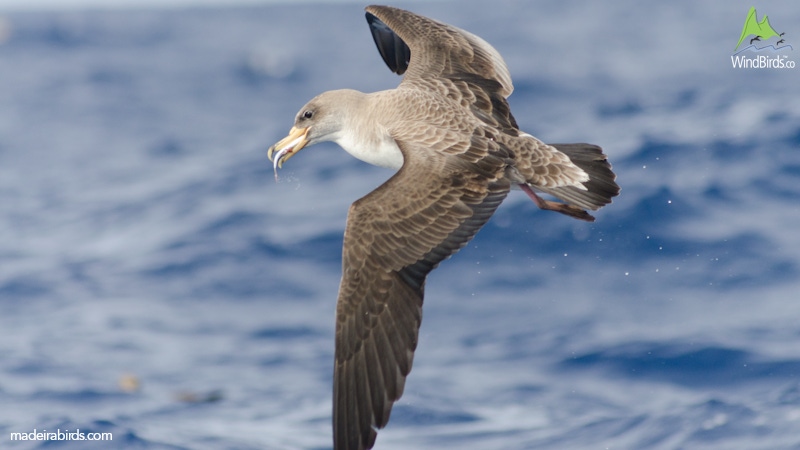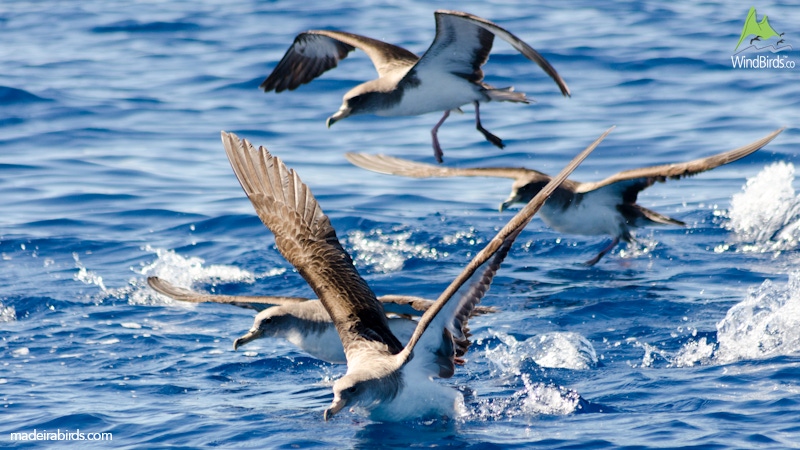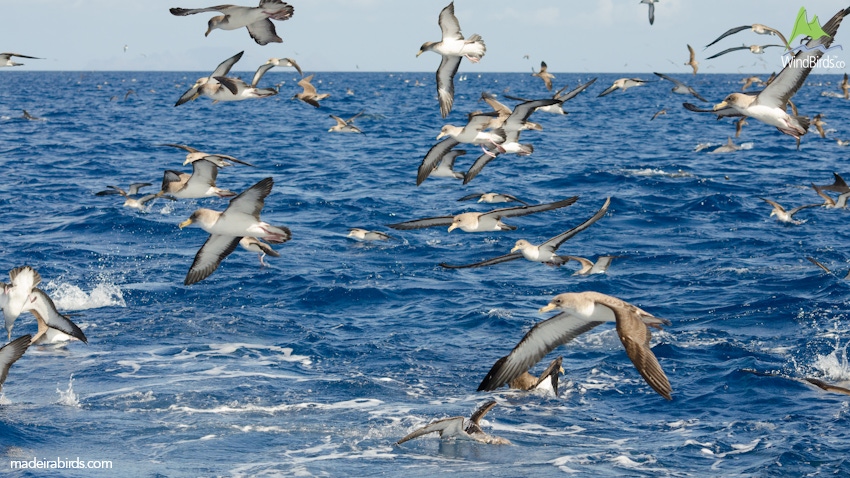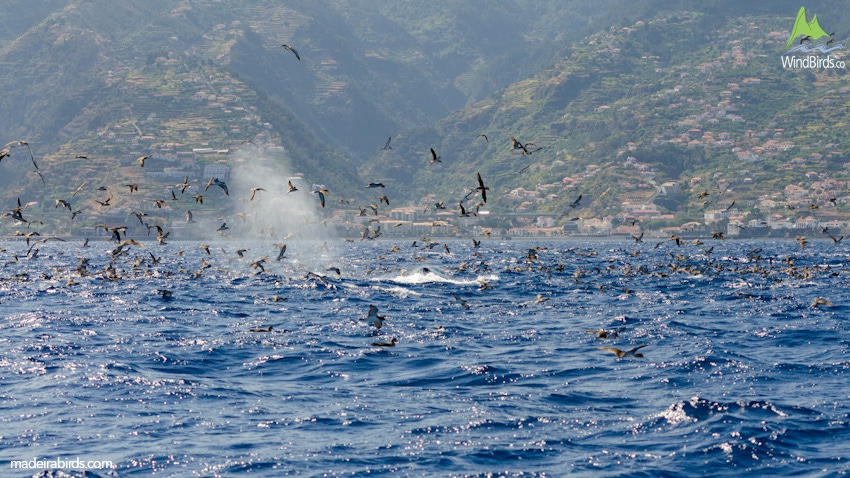Cory's Shearwater Calonectris borealis (Cory, 1881)
Order: Procellariiformes Family: Procellariidae Status: Breeding in Madeira

Recommended birdwatching sea trips to watch this seabird
Bird, dolphin and whale watching trip
Cory’s Shearwater Field ID Keys
Shape & Size
Cory's Shearwater is the largest shearwater and seabird that breeds in the Madeira archipelago. It has long, broad and slightly rounded wings and its bill is relatively stout, long and with a hooked tip.

Colour Pattern
It is a grey-brown seabird with white underparts. It has greyish-brown upper-parts, neck sides and head with no marked cap. Its underwings are white with dark remiges and the bill is yellowish.

Behavior
Cory's Shearwaters flight is relaxed, low, very close to the sea and weaving its body along the waves, rarely beating its wings. Under strong winds, it flies higher describing consecutive ‘U’s and when coming lower it seems that it almost touches the ocean. In Madeira, it is common to hear them after sunset near the coastline all around the island.

Habitat
This seabird is very common in the Atlantic, especially in warmer waters as the Northeast Atlantic archipelagos. In Madeira it can be seen around from the end of February until mid-November, during its breeding season. The winter months are spent offshore in the Southern part of the Atlantic. Cory’s shearwater can be seen around all islands of the Madeira archipelago with Selvagens having the largest number of birds per square meter.

Distinction from similar species
It can easily be confused with Scopoli’s shearwater and only a good and close observation of its underwings may distinguish both species. The underwing of Cory’s have a larger dark line along the remiges while Scopoli's seem to have just a thin contour of the underwing with the primaries typically showing a prominent white wedge on its inner web. Cory’s shearwater is a bit bigger and bulkier, with broader wings and bigger head and bill.
Calonectris borealis Biometrics
Wingspan: 113 - 124 cm (Howell, 2012)
Total length: 48 - 56 cm (Howell, 2012)
Tail length: 121 - 144 mm (Howell, 2012)
Bill length: 50 - 60 mm (Howell, 2012)
Weight: 700 - 800 g (Hume, 2002)
Other Bird Facts
Seasonality in Madeira: From the end of February to mid-November
Breeding: In Madeira, this species nest mainly in sea cliffs while in Selvagens it builds its nests on holes on the ground or under big rocks, but never too far from the ocean. It lays one egg on the unique annual brood, between May and June. The incubation period is 54 days and the chick fledge by end of October.
Diet: Feeds on fish and crustaceans and it usually dives to catch the fish.

Status
Madeira local status by Correia-Fagundes et al, 2021: Very Common breeding bird
Madeira local status by Romano et al, 2010: Very common breeding bird
Madeira local status by Zino et al, 1995: Very common breeding bird
Conservation status by the IUCN Red List Categories, 2013: Least Concern ver 3.1
Name of this species in other languages
Portuguese: Cagarra
German: Gelbschnabelsturmtaucher-diomedea
Dutch: Scopoli's Pijlstormvogel
Swedish: Gulnäbbad lira
Danish: Kuhls Skråpe
Finish: Keltanokkaliitäjä
Norwegian: Gulnebblire
Spanish: Pardela cenicienta
French: Puffin cendré
Italian: Berta maggiore
Polish: Burzyk żółtodzioby
Slovak: Víchrovník plavý
Czech: Buřňák šedý
Join Madeira Wildlife Monthly Newsletter. All the updates on your email every month.